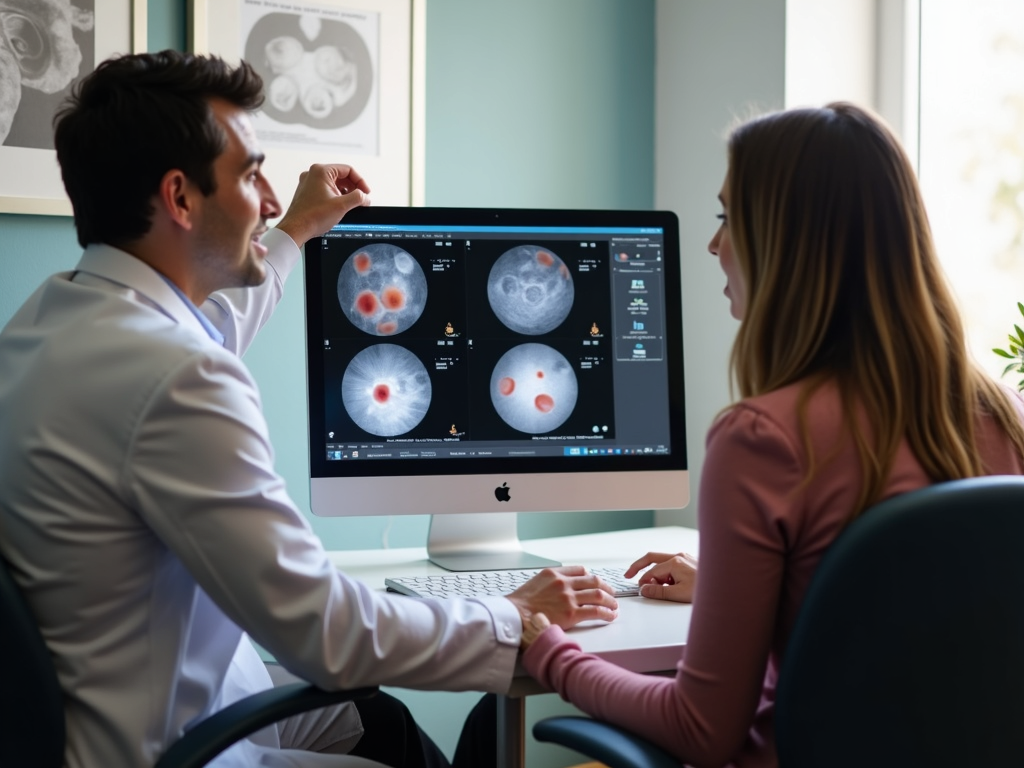Understanding Preimplantation Genetic Testing in IVF
July 5, 2025, 7:10 a.m.
Overview
Preimplantation genetic testing (PGT) is a revolutionary technique used in IVF to screen embryos for genetic disorders before they are implanted. This can help to ensure a healthy pregnancy and reduce the risk of genetic diseases.

What is Preimplantation Genetic Testing?
PGT is a technique used during IVF to test embryos for genetic disorders before they are implanted into the uterus. This helps to ensure that only healthy embryos are selected for implantation, which can increase the chances of a successful pregnancy and reduce the risk of genetic diseases.
How Does PGT Work?
During IVF, eggs are fertilized with sperm in a laboratory to create embryos. After a few days of growth, a few cells are removed from each embryo for testing. This testing can look for specific genetic disorders or chromosomal abnormalities.

Types of PGT
There are three main types of PGT:
- PGT-A (Aneuploidy): Tests for chromosomal abnormalities, such as Down syndrome.
- PGT-M (Monogenic Disorders): Tests for specific genetic disorders, such as cystic fibrosis.
- PGT-SR (Structural Rearrangements): Tests for chromosomal rearrangements that can cause infertility or miscarriage.
Benefits and Risks of PGT
The main benefit of PGT is the ability to select healthy embryos, which can increase the chances of a successful pregnancy and reduce the risk of genetic diseases. However, there are also risks, such as the possibility of damaging the embryo during the testing process or the potential for false positive or false negative results.

PGT and Fertility Preservation
PGT can be used in conjunction with embryo cryopreservation, which allows embryos to be frozen and stored for future use. This can be particularly useful for couples who want to delay pregnancy or for those who are undergoing medical treatments that could affect their fertility.
Benefits of Embryo Cryopreservation for IVF
Embryo cryopreservation offers several benefits, including:
- Allowing couples to have multiple attempts at pregnancy without having to go through the entire IVF process each time.
- Providing a way to preserve fertility in cases where a person's fertility might be compromised, such as before cancer treatment.

Advancements in IVF Technology
Advancements in IVF technology, such as more sophisticated genetic testing techniques and improvements in freezing and thawing methods, have made PGT and embryo cryopreservation more effective and accessible.
Summary
Preimplantation genetic testing is a powerful tool in IVF that can help to ensure a healthy pregnancy and reduce the risk of genetic diseases. When used in conjunction with embryo cryopreservation, it can also provide a way to preserve fertility and increase the chances of a successful pregnancy.